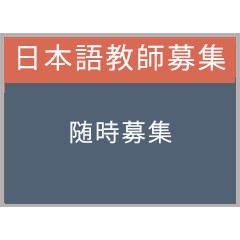Private Japanese Lessons
Senior Japanese Tutor Junko

Native Senior Japanese Teacher JUNKO
Japanese Teaching Experience 16 years
Native Language Japanese
Language Ability Fluent English, Fair Cantonese
Born NARA – Japan
Teaching Area Central, Midlevel, CWB
Japanese Courses Provided by Junko
Native Senior Japanese Tutor
Hi, I’m Junko. I’m native Japanese who has taught Japanese since 2009 in Hong Kong. My teaching style is totally tailor made that adjusts to the requirement of each student. I am very curious about many things such as movies, music, books, cooking and many cultural things.
I always teach Japanese using some topics that my students are interested in. I believe that this teaching style can motivate students to learn more Japanese. I have taught many nationalities and many people who work in a variety of division like bankers, asset managers, hedge fund people and university student.
I promise you to make very attractive classes. And I am also very confident to help you prepare JLPT. All students who took JLPT exam passed their grade, N1, N2, N3 and N4. If you focus JLPT preparation, I’ll do my best to help your exam.
Let’s learn Japanese with me!!!!
こんにちは 私は香港で2009年から日本語を教えているJUNKOです。
私の授業はすべてテーラーメードで、生徒さんのご要望にあわせて授業をすすめています。私は以前からとても好奇心旺盛でいろいろなことに興味を持っています。たとえば映画、音楽、読書、お料理など、特に文化的なものに興味を持っています。ですから、授業の中で、生徒さんの興味のあるものを引用しながら授業を盛り上げていくようにしています。このやり方を通して生徒さんの学習意欲を上げています。
今までの経験の中で、多くの外国人も教えましたし、いろいろな業種の生徒さんに日本語を教えてきました。たとえば、銀行員、アセットマネージャー、ヘッジファンドそして多くの学生たちです。
これらの経験を通して、必ず楽しい授業を行うことをみなさんにお約束します。
それから、JLPTのテスト対策にも自信を持っています。もしあなたがJLPTに向けて日本語を勉強しておられるのでしたら、お力に慣れることと思います。
みなさん、是非私と一緒に日本語を勉強しましょう。
Japanese Teaching Approach
I can provide 4 main approaching to teach Japanese.
1. Reading Japanese characters
It is necessary to pronounce Japanese correctly.
2. Speaking
After they start reading Japanese, I push them to speak out. If they want to speak more, they need more vocabrualies. It’s good opportunity to learn something new.
3. Writing
Some students want to work in Japanese companies. So writing is very important. It’s very challenging part to study Japanese.
4. Listening
Listening is most challenging part. I tell my students to listen to general Japanese speaking. But it’s difficult to keep on listening. I usually how to enjoy those materials.
生徒の要望、レベルに合わせて完全テーラーメードです。教科書は各生徒に合わせて選びます。
Private Japanese Lessons and Personalised Programs
I can adjust student’s request. According to their requests, I choose textbook. Mainly I teach it by using textbook but I try to make my own working sheets to help my student improve difficult part of Japanese learning.
Japanese Teaching Qualifications and Experience
I have taught Japanese since 2008 in Hong Kong. I taught many students for past 9 years. Most students are adult and they work in many industries. Some are expats from overseas. So I have to adjust to each student in many ways. It made me a powerful Japanese tutor who has a lot of experience.
Once I had some group lessons in one of famous investment banks. So I have knowledge to teach business people.
I taught Japanese in two secondary schools. Both are one scheme of after school activities. I enjoyed teaching a lot with lively teenagers.
Ask JUNKO Teacher Japanese Learning Questions
JUNKO先生へ「のぼる」・「あがる」の違いについて説明していただけないでしょうか?
JUNKO先生’s Answer:
「のぼる」 山にのぼる、木にのぼるなど、誰かが自らのぼっていくことを表すときに使う言葉。それ以外には、月、太陽、煙など自然現象をあらわすときにも使われる。
例:太陽がのぼる
「あがる」 階段をあがるなど他動詞として使われる以外に、成績が上がる、株価が上がるなど、数字があがる場合にも使われる。
その他、煙、花火などが上がるという使い方もできる。
「あがる」があげるという他動詞形があるのに対して、「のぼる」という言葉には、この他動詞形が存在しないのも大きな違い。
JUNKO先生へ 「上手です」・「得意です」の意味の違いについて説明していただけないでしょうか?
JUNKO先生’s Answer:
上手はその人がその事が好きかどうかに関係なく、誰からみても、その事がうまくできるときに使う言葉で、ある意味客観的な言葉です。得意は本人がその事が好きで、自分がそれに対して自信があることに使われることが多いです。主観的な言葉です。
英語が上手です。料理が上手です。友達を作るのが上手です。などと語学、趣味から抽象的なことまで幅広く使われます。他人が使うこともあります。XXさんは英語が上手ですね。など
得意は、自分が自信持ってできるものに対して使います。英語が得意、料理が得意、使い方は上手と同じです。
JUNKO先生へ「大きい」と「広い」の違い、使い方について教えていただけないでしょうか?
JUNKO先生’s Answer:
大きいは物のサイズを表す言葉で、食べものから動物、船などいろいろな言葉のサイズを表すのに使います。
広いは部屋、家、土地、運動場など、面積が大きいということを伝えるために使います。
Ask JUNKO Teacher Japanese Culture Questions
日本文化と一言で言ってもいろいろあります。茶道、華道、から歌舞伎まで数々の伝統文化があります。古来から伝わる多くの伝統文化は侍、武士と言った人たちの暮らしぶりから生まれたものではないかと考えています。
それらの文化から、日本人の生活様式、身のこなしなど、日本人らしい部分もうかがえるので、やはり日本文化の中心はこれらの日本伝統文化だといえるでしょう。
それに反して、今、日本のことを話すために忘れてはならないのが、日本の大衆文化です。代表するものは、アニメです。アニメほど海外で認められた日本文化は無いと思うので、日本文化を語るときに、アニメをはずすことはできません。
Japanese culture has many different uniquely interesting aspects, traditional cultures from tea ceremony, flower arrangement, to Kabuki. I believe that many Japanese traditional cultures that have been passed down from the way of life of people such as samurai and samurai in the ancient times.
It can be said that these cultures are the center of Japanese culture, since you can also see the Japanese-styled parts such as Japanese lifestyles and lifestyles from those cultures.
On the other hand, it is Japanese popular modern culture that must be remembered to talk about Japan. The representative one is animation. I don’t think there is any Japanese culture that is recognized overseas as much as anime, so when talking about Japanese culture, you can’t forget to mention anime.



Stay in Touch
RSS
Facebook
Twitter
Google +1